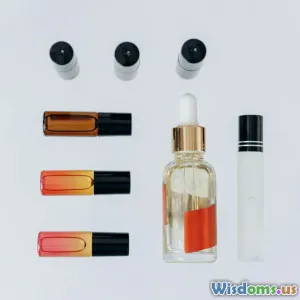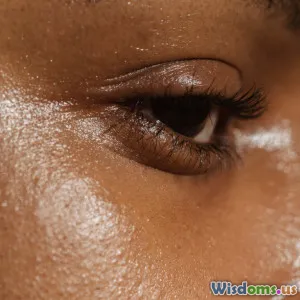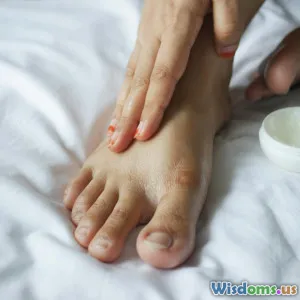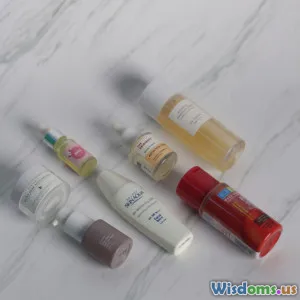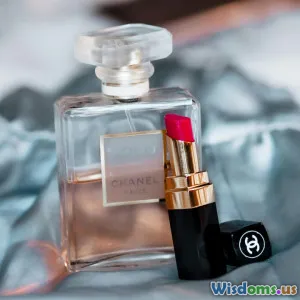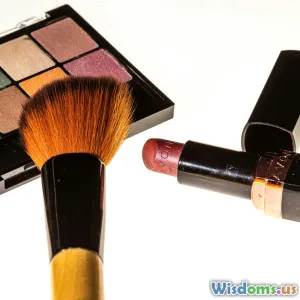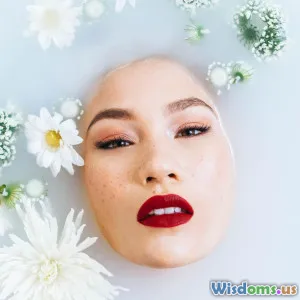
Why Less is More The Minimalist Guide to Flawless Beauty
8 min read Discover how minimalist beauty routines achieve flawless skin using fewer products and intentional care. (0 Reviews)
Why Less is More: The Minimalist Guide to Flawless Beauty
Introduction: The Allure of Simplicity in Beauty
In a world saturated with sprawling makeup collections, countless skincare products, and endless advertisements promising instant transformation, the idea of "less is more" in beauty may seem counterintuitive. Yet, this minimalist philosophy is gaining momentum—and for good reason. It invites us to strip back the excess, question the need for every product, and embrace natural radiance through intentional, streamlined care.
Minimalism in beauty is not just a trend; it's a thoughtful lifestyle choice promoting healthier skin, saving both time and money, and fostering a deeper connection with oneself. According to a 2022 survey by The NPD Group, 34% of skincare consumers are downsizing products and focusing on essentials, reflecting a shift towards meaningful, effective routines over quantity.
This guide will unpack why less truly is more in the realm of beauty—detailing foundational principles, practical strategies, and inspiring real-world examples that empower you to cultivate flawless beauty with simplicity.
Understanding the Philosophy of Minimalist Beauty
The Essence of Less
Minimalist beauty embraces intentionality—each product, step, and ritual has a purpose. Rather than overwhelming your skin and senses, this approach favors multifunctional products, natural ingredients, and timeless techniques.
Dr. Jessica Wu, a board-certified dermatologist, highlights, "Simplifying your routine can reduce irritation and improve skin’s natural barrier. Quality and consistency trump piling on products."
Environmental and Ethical Impact
Minimalism also aligns with sustainability. By choosing fewer products with eco-friendly packaging or ethically sourced ingredients, you reduce waste and your carbon footprint. Brands like Glossier and The Ordinary have championed minimalist packaging paired with clean formulas.
Building a Minimalist Skincare Routine
Start With the Essentials
A typical minimalist skincare routine consists of these core steps:
- Cleansing: Opt for a gentle cleanser suitable for your skin type. For example, Cetaphil’s gentle formula cleans without stripping.
- Moisturizing: A lightweight moisturizer restores hydration. If you have oily skin, gel-based options like Neutrogena Hydro Boost excel.
- Sun Protection: Broad-spectrum SPF is non-negotiable. EltaMD UV Clear is favored for its lightweight feel and protection.
This trio ensures your skin stays clean, nourished, and defended without overwhelming ingredients or steps.
Layering Without Overloading
The minimalist philosophy doesn’t reject treatment products but urges discernment. Incorporate serums or exfoliants purposefully—perhaps a vitamin C serum in the morning or a gentle AHA exfoliant a few times weekly.
As skincare expert Caroline Hirons advises, "Introduce actives one at a time, observe how your skin responds, and avoid mixing chemicals unnecessarily."
Benefits Backed by Science
Minimal regimens reduce the risk of irritation disorders like contact dermatitis and acneiform eruptions. Studies confirm that overuse of products, especially those with fragrances or preservatives, disrupt the skin barrier (Journal of Clinical and Aesthetic Dermatology, 2021).
Minimalist Makeup: Enhancing Natural Beauty
Choose Multi-Functional Products
Switching to makeup that serves several purposes can drastically reduce clutter and application time. For instance, a tinted moisturizer with SPF combines hydration, coverage, and sun protection.
Example: Ilia’s Super Serum Skin Tint offers light coverage infused with skincare actives.
Focus on Key Areas
Highlight your best features rather than masking completely. Enhance eyebrows for structure, add a subtle flush of color on cheeks, and groom lips with tinted balms.
This approach not only produces a fresh, effortless look but also utilizes fewer brushes and products.
Hygiene and Skin Health
Minimal makeup reduces pore-clogging risk and allows skin to breathe. Dermatologists recommend avoiding thick layers to prevent exacerbation of acne and premature aging.
Lifestyle Factors Amplifying Minimalist Beauty
Nutrition and Hydration
Glowing skin starts from within. Consuming a balanced diet rich in antioxidants and drinking adequate water supports cellular repair and elasticity. Researchers at Harvard Health report that antioxidants combat free-radical damage, a major cause of skin aging.
Sleep and Stress Management
Chronic sleep deprivation and stress trigger inflammation, dullness, and breakouts. Prioritizing eight hours of restful sleep and mindfulness practices improves skin recovery and overall glow.
Movement and Outdoor Time
Moderate exercise enhances circulation, delivering oxygen and nutrients to the epidermis, while outdoor exposure in moderation promotes vitamin D synthesis critical for skin health.
Real-World Insights: Minimalism in Action
Consider actress Emma Watson, a vocal advocate of eco-conscious minimalist beauty. She prioritizes natural ingredients and advocates gender-neutral, sustainable products.
Influencers like Sarah Grace use fewer, carefully selected products to simplify routines, increase skin clarity, and reduce environmental impact.
Consumer stories point to decreased sensitivities, better skin hydration, and more confidence when shedding complex regimens.
Challenges and How to Overcome Them
Overcoming Habitual Overuse
Many people cling to elaborate routines out of habit or marketing influence. Start by auditing your products, discarding duplicates or low-performers.
Navigating Skin Concerns
Those with chronic conditions like eczema should consult dermatologists to customize minimal routines that avoid flare-ups.
Mindset Shift
Recognize that beauty is not a race or checklist. Minimalism invites patience and acceptance of natural skin cycles.
Conclusion: Embracing Flawless Beauty Through Minimalism
The pursuit of flawless beauty doesn’t require an arsenal of creams, serums, and palettes. Instead, it thrives on intentionality—the mindful use of products that nourish, protect, and enhance. This minimalist guide enlightens us that by reducing complexity, we not only honor our skin’s integrity but cultivate confidence rooted in authenticity.
As Marie Kondo revolutionized tidying by asking if items spark joy, we can rethink beauty through a similar lens: Do these products truly serve my skin and well-being?
By embracing less, we ultimately reveal more—the true radiance of our flawless beauty.
Rate the Post
User Reviews
Popular Posts










